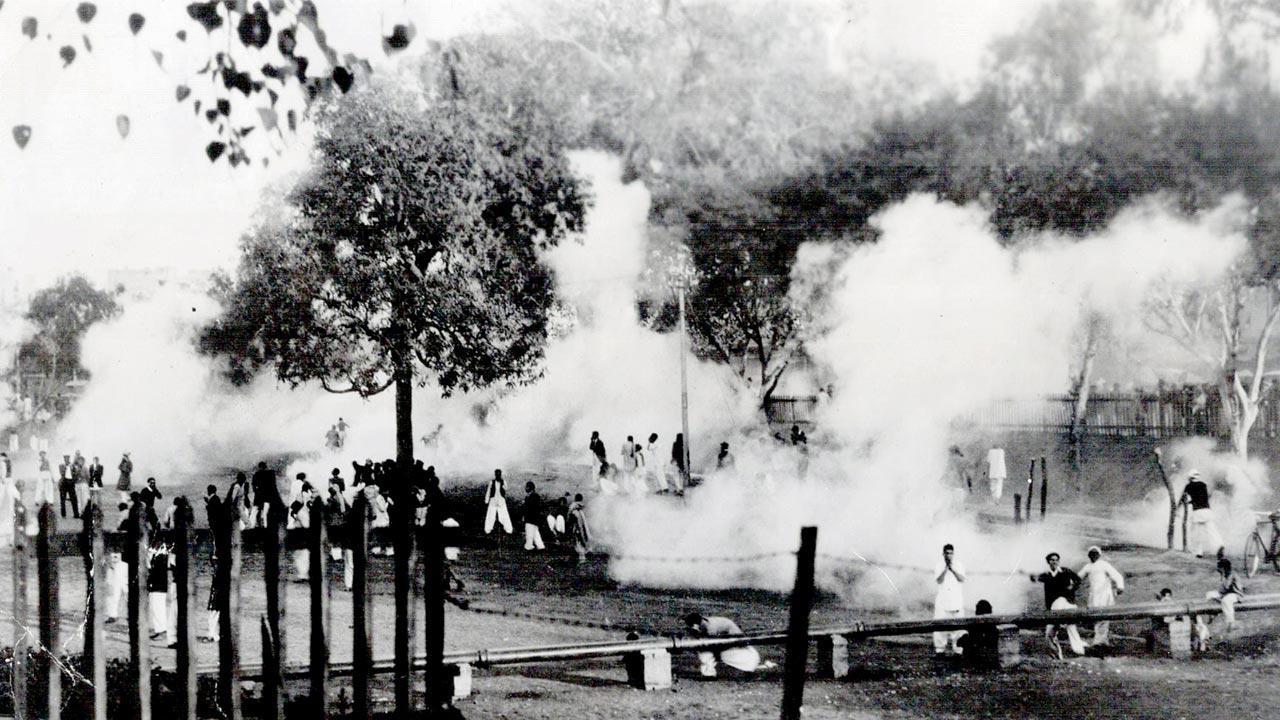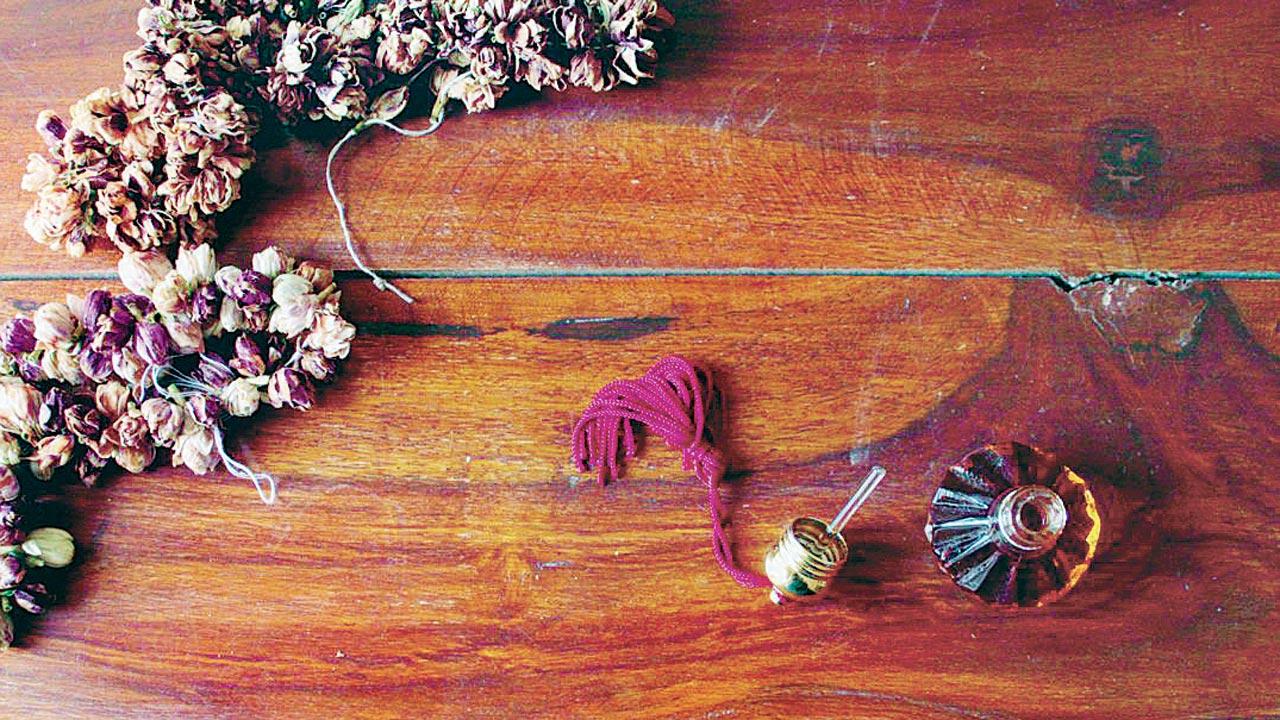A debut novelist who is a Partition scholar gets together with a bestselling storyteller exploring the impact of it in Bengal, to discuss the challenges of being true to history and learning to move forward

Clashes between Hindus and Muslims in Calcutta on May 26, 1947, a few months before India’s Independence, which killed four people. Pic/Getty Images
It's one thing to tell a story, and completely another to tell a story about a significant event in the country’s history. Especially, when it is about India’s fight for Independence. Writer Chitra Banerjee Divakaruni has lived with these stories forever. “My grandfather and mother were both followers of Mahatma Gandhi, and actively involved in the freedom movement. I heard a lot about the marches, lathi charges, and harsh repercussions of those participating in them. All of this stayed with me,” she shares over a video call from Houston. The Indian-American author felt the urgency to pen these received experiences after completing her previous novel, The Last Queen, which recalled the story of Maharani Jind Kaur, and how the British “manipulated and bribed her court to take over Punjab”. “That was a painful story for me to write. I really needed, in some moral and cathartic way, to see the end of that movement when the British are forced out of India, and the country gains its freedom.” But this triumph also coincided with the Partition. One that was harder to ignore.
ADVERTISEMENT
Divakaruni’s new book, Independence (HarperCollins India), takes us into the tiny village of Ranipur in Bengal, where the lives of three sisters—Deepa, Jamini and Priya—change almost unexpectedly in the August of 1946. “A lot happened in Bengal during that time.” The Direct Action Day and the Noakhali riots that followed were horrifying, but it had been neglected, she says. “I felt there was this huge gap in our Partition literature [written in English], and I wanted to fill that.”
 Malhotra’s protagonist Samir Vij, a perfumer’s apprentice, works in the family’s ittar shop in Lahore. He doesn’t just smell with his nose. “How he felt most physically and intimately connected to any smell, fragrant or foul, was by smelling it through his gut,” she writes. Pic Courtesy/Aanchal Malhotra
Malhotra’s protagonist Samir Vij, a perfumer’s apprentice, works in the family’s ittar shop in Lahore. He doesn’t just smell with his nose. “How he felt most physically and intimately connected to any smell, fragrant or foul, was by smelling it through his gut,” she writes. Pic Courtesy/Aanchal Malhotra
For oral historian and Partition scholar Aanchal Malhotra, her motivation to write The Book of Everlasting Things—her soon-to-release debut as a novelist—was to feel a sense of “liberation”. The novel is an inter-religious story about love, loss and longing that begins at an ittar shop in Lahore. “I started thinking about this novel even before [my non-fiction] Remnants of a Separation [August, 2017] launched. I made the first draft outlines in the end of 2016, and began writing soon after. Sometimes, as a oral historian, you are bound by the ethics of an interview... it’s a very sacred relationship between the person who is telling a story that s/he may never have uttered before, and you, who is recording it. After interviewing people for nearly nine years [on the Partition], you can experience some heaviness. It’s difficult to carry people’s sadness all the time. The novel gave me a bit of respite.”
Divakaruni’s research has evolved since some of her earlier works, including Arranged Marriage and Mistress of Spices, published in the’90s. “Most of my contemporary stories were based on my everyday research... you live it, you see it, you eavesdrop on conversations. But, with my historic and epic novels, I learnt a lot about doing research. How to go to the original text, and find material from that time period. This was made more difficult by the pandemic. Since I am a visual person, I began relying a lot on images [photographs and paintings],” she recalls. “For Independence, it was newspapers that I relied most on.”
 Chitra Banerjee Divakaruni and Aanchal Malhotra
Chitra Banerjee Divakaruni and Aanchal Malhotra
Where Malhotra has engaged with “memories of people”—that which has been obfuscated and overshadowed by data and facts, and the politics of Partition—her struggle came less with situating these experiences, and more with the actual form of the novel. “Particularly, with historical novels, where there’s so much happening all at once, and where things in the past, connect with the present and the future. The thing is that a novel doesn’t arrive fully formed, it arrives in pieces, and as Chitra rightly said, you could be inspired by something someone says at some point, and then you deposit it in, fictionalising it, as much as you can. But I find it really incredible that at the end, a historical piece of fiction is kind of an undulating terrain, where there’s joy in the unpredictability of your narrative, but there’s also so much difficulty [in creating it].”
While Partition is the overarching theme of both these books with overlapping tales of devastation and “forbidden” romances—a Hindu falling in love with a Muslim, when the fate of millions and what they’ll call home is being determined by religion—the writers also take precious time to focus on ancient kala and crafts. Divakaruni’s characters recreate kantha embroidery on quilts and sing Rabindra Sangeet, while Malhotra’s protagonist Samir Vij introduces us to the world of perfumery; his love interest Firdaus is a calligrapher’s apprentice. “A few years ago, my mother told me a story,” says Malhotra of her inspiration. “She told me about my nana, who was a chemist, and would make these soaps, shampoos and perfumes for Dabur. He would receive these vials with different extracts, papaya, mint, rose, which he would then use for his products. The ones he didn’t use, he would bring home and deposit into the water of the cooler, so that the house would smell of different fragrances. It’s such a beautiful, amorous seed of memory, and I felt it needed to be explored further. When my mom described this to me, I just felt it was so tender. I didn’t know that side of him. And a lot of the character of Vivek [Samir’s uncle, who introduces him to perfumery] is drawn from the characteristics of my grandfather.”
To tell stories as sensitive as these at a time when writers can easily be misunderstood, and when the love jihad rhetoric has now consumed the nation, is distressing. “It’s a bit sad that that equation is still relevant 75 years later. We are asking the same questions. When I was writing the book, it didn’t feel like taboo... I was just writing about two people in love,” shares Malhotra. Divakaruni adds, “It was a reflection of our reality. I had heard these stories from my mother, and some of them were incredibly sad. I have tried to be as true to the times as possible, and our material. That’s all we can do as authors, isn’t it? Am I scared? I am terrified. But I want readers to look at our history, how far we’ve come, so that they know what to do.”
 Subscribe today by clicking the link and stay updated with the latest news!" Click here!
Subscribe today by clicking the link and stay updated with the latest news!" Click here!







